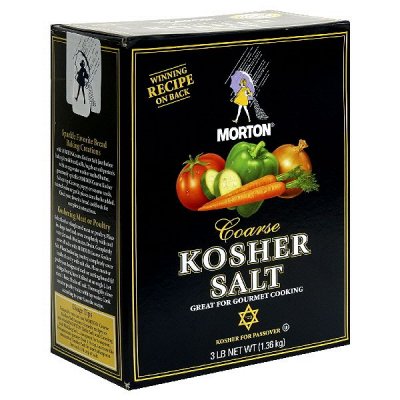Addie
Chef Extraordinaire
Almost every site I go to that tells you the difference between table and kosher salt state that table salt has iodine added. Not all table salt does. You can buy it without the iodine. I have to take an iodine pill every day so I don't buy the table salt with iodine. If I did, I would be putting new roofs on all the buildings in my neighborhood. In fact, I don't buy table salt at all anymore. I buy course and fine sea salt.
But I do wish the naysayers for table salt would get their facts straight when it comes to iodine. Do they realize that they are giving false medical information?
But I do wish the naysayers for table salt would get their facts straight when it comes to iodine. Do they realize that they are giving false medical information?




 One for the Big Chicken Lady in the Big Chicken Coop.
One for the Big Chicken Lady in the Big Chicken Coop.